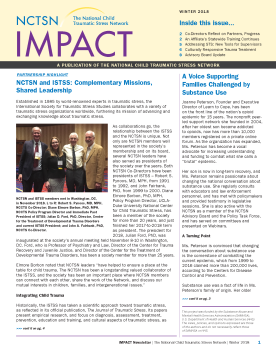
NCTSN Impact Newsletter: Winter 2018
Includes articles that range from how NCTSN leadership and missions are linked with other trauma-focused organizations, such as the International Society for the Study of Traumatic Stress.
The following resources on child trauma were developed by the NCTSN. To find a specific topic or resource, enter keywords in the search box, or filter by resource type, trauma type, language, or audience.

Includes articles that range from how NCTSN leadership and missions are linked with other trauma-focused organizations, such as the International Society for the Study of Traumatic Stress.
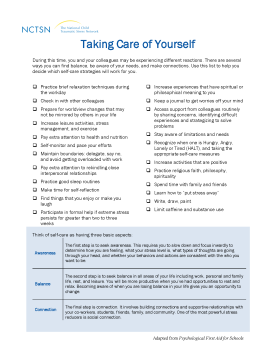
Offers providers a list of ideas for self-care strategies to use after a difficult event. This checklist outlines the three basics aspects of self-care including awareness, balance, and connection.
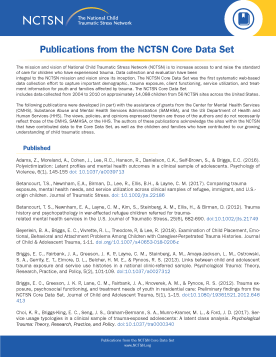
Is a list of publications from the NCTSN Core Data Set. This comprehensive list gives readers the reference information for each publication.
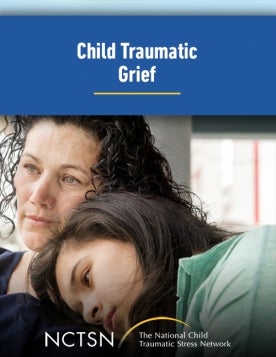
Provides a brief overview of the definition and impact of traumatic separation. Speakers will discuss the importance of understanding traumatic separation when working with youth in the foster and kincare systems.
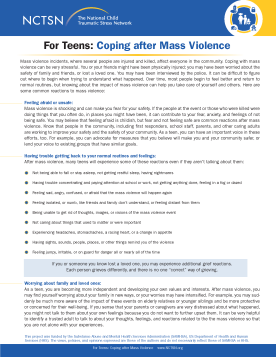
Offers information for teens about common reactions to mass violence, as well as tips for taking care of themselves and connecting with others.
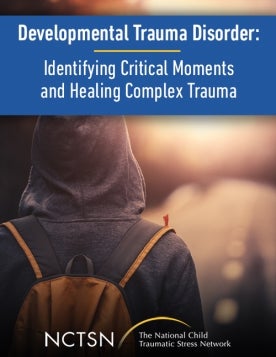
Depicts a moment when Rose initially directs her feeling of being victimized toward her therapist. Rose expresses that therapist’s contact with her mother and school has increased the stigma and vulnerability she feels, and her sense that she’s not getting the support she needs.
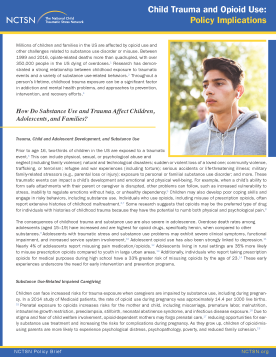
Provides policymakers and other stakeholders with an overview of how substance use and trauma affects children, adolescents, and families; substance use-related impaired caregiving; and the impact of the opioid crisis on children and families.
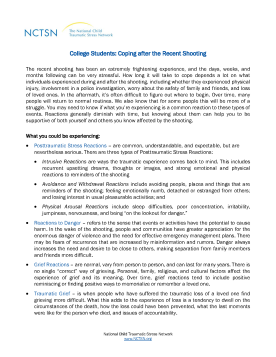
Provides information for college students on how to cope afte the recent shooting. This fact sheet offers insight into what college students could be experiencing in light of the recent shooting, as well as types of reactions and what they can do for themselves.
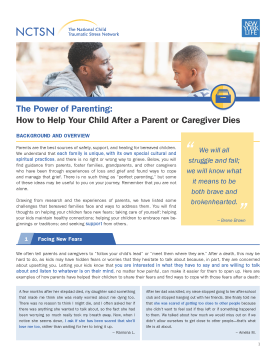
Offers guidance around helping children cope after the death of a loved one. Information is provided about how to face new fears in the context of bereavement, how grieving caregivers can take care of their own needs...
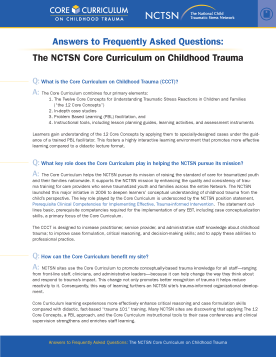
Answers frequently asked questions about the NCTSN Core Curriculum on Childhood Trauma.
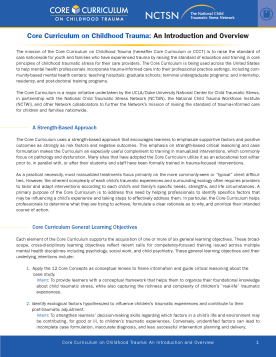
Provides an introduction and overview to the NCTSN Core Curriculum on Childhood Trauma (CCCT). This fact sheet offers information on the CCCT including its strengths-based approach, learning objectives, its elements, and its case studies.
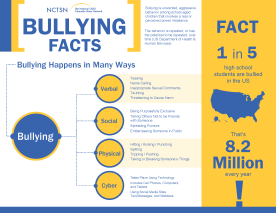
Offers simple facts on bullying. This infographic outlines the different types of bullying.